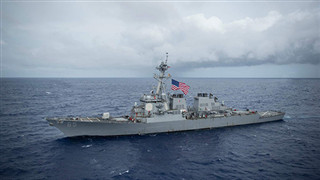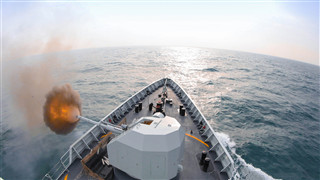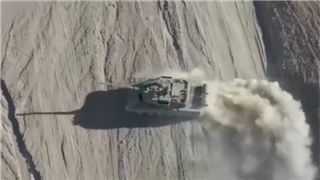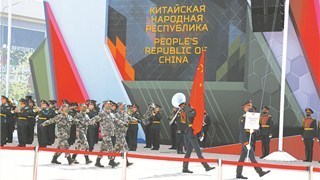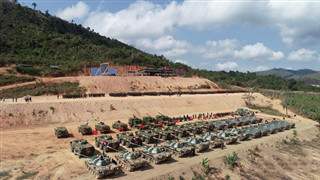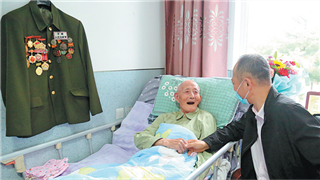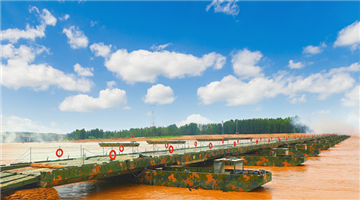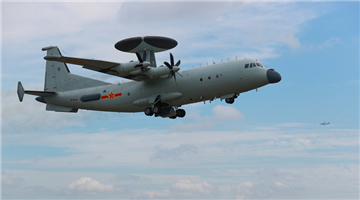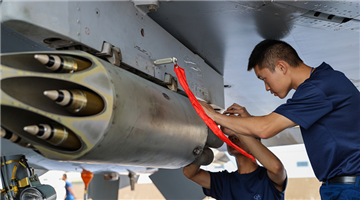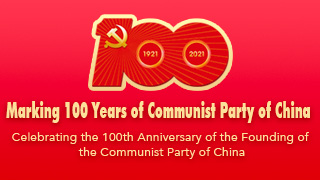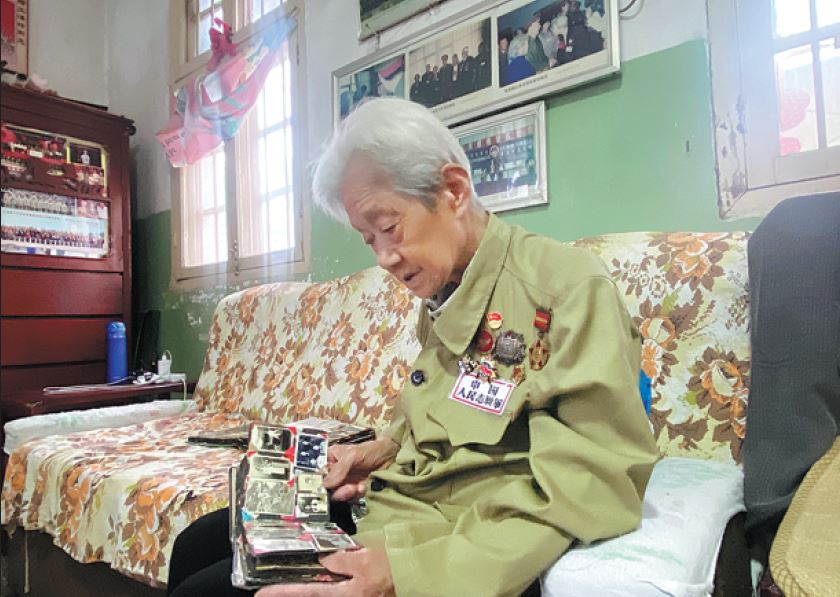
Wearing a faded green army uniform decorated with a dozen medals and sitting on the sofa at her home in Xiaogan, Hubei province, 85-year-old Wang Qingzhen opened a photo album.
While looking through the photos, Wang recalled her work as a nurse of the Chinese People's Volunteer Army amid the bullets and shells of the War to Resist US Aggression and Aid Korea (1950-53).
Wang was a front line nurse during the Battle of Triangle Hill in the Democratic People's Republic of Korea and was awarded a second-class merit for her work on the battlefield.
Her story begins with a dramatic prologue.
Born in 1936 in Wuhan, Hubei province, Wang and her parents and three brothers lived through the chaos and unrest of the time. In 1942, the family moved to today's Weining Yi, Hui and Miao autonomous county in Guizhou province, after Japanese troops occupied Wuhan during the War of Resistance Against Japanese Aggression (1931-45).
At the time, her father was a railway worker and her mother was a housewife. There were many bandits in Weining and when Wang turned 14, she caught the eyes of one of them, who wanted to take her as his concubine. Of course, the family refused, but the bandit kept harassing the young girl.
When the People's Liberation Army troops arrived in Weining quietly one night to deal with the bandits and the remnants of Kuomintang units, Wang was surprised to see the soldiers sleeping in neat rows along the street, not disturbing local residents.
A few days later, the troop's publicity team moved into the yard of the local railway bureau, which was next to Wang's home. She soon made friends with some of the female soldiers and sometimes volunteered to care for the wounded and sick at a hospital.
With the troop's help, the bandits were driven away, and as Wang learned more about the PLA, she decided that she wanted to join. "I was shy and didn't talk much, but the soldiers were very polite and kind. I learned from them that the PLA is the protector of the people," she said.
Her parents supported her decision to join the army, as they were worried the bandits would return once the troops left. At first, the troop leader didn't agree, saying Wang was too young to be enlisted.
Her father pleaded with the officer. After learning the whole story, he agreed to take her in as a health worker.
Still green, Wang learned medical skills from the other soldiers and soon realized that army life was very difficult. "We repaired roads. We slept on sorghum stalks, and got bitten by mice. It was nothing like being at home," she said.
Later, the troop traveled to Xingtai in Hebei province to prepare to fight in the DPRK. Wang was not on the list to go, because the officer in charge thought she was too young. "I cried and asked to go with them," she said.
Her wish was finally granted. The troop traveled by train and bus to reach the battlefield.
The Battle of Triangle Hill was cruel and conditions were harsh. "The sky was full of planes and bombs were being dropped everywhere. The wounded poured in, even at night. It was hard to count the number. There were injuries and deaths every day. At first, I felt scared and sad but afterward, there was no time to think," she said.
The medical team lacked basic necessities, especially drugs. The nine nurses had to use a flint to make a fire for light and often worked in darkness. Once, Wang looked after more than 20 patients in a day. "I remember a patient in a coma. The head nurse pressed on his chest and I did artificial respiration, but he was gone. Many people died despite our efforts, and soldiers would return to the battlefield as soon as they could move again," she said.
After the war ended in 1953, she married a PLA officer in the DPRK.
After returning to China, she retired from military service and began to work at a medical apparatus factory in Beijing in 1958. Later, she rejoined the army and worked in the health office of the logistics department of the No 15 branch of the PLA's airborne troops. She was the office's deputy director when she retired in 1982. Her husband, Liu Huanjie, died at the age of 88 in 2011 and her youngest son died of liver cancer last year.
After retirement, Wang looked after patients and disabled children in her neighborhood free of charge, and on hundreds of occasions, she told her revolutionary stories at schools and factories and to soldiers. "I want to encourage young people to cherish today's peaceful and happy life, and to love the country, the Party and the PLA," Wang said.
Wang's eldest son, 64-year-old Liu Xiangming said: "My mother used to tell us how difficult the war was and how hard victory was won, but she never talked about herself. My parents lived simple, hardworking lives.
"She often said that we were a military family and shouldn't bring shame on it. She is not good at housework, but is keen on nonprofit activities."
Liu Hui, a worker at a nursing home for retired soldiers in Xiaogan, said that she knew Wang and her husband for more than 20 years but had no idea she had made such great contributions during the war. "She was very kind and gentle, and never requested anything," Liu said.
Wang became a member of the Communist Party of China at 26. When asked what she wanted to say to today's generation on the 100th anniversary of the CPC, she said: "Now China has become stronger. Don't forget your original intentions, and pass down Red genes."
